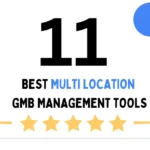Let’s be honest, we’ve all been there. A new blockbuster drops, the hype is real, but it’s not on your streaming service of choice. A quick search, a few clicks, and you’re down the rabbit hole: the endless, frustrating search for a working Tamilrockers proxy.
It feels like a digital game of whack-a-mole, doesn’t it? One domain gets whacked by a court order, and two new proxy mirrors pop up elsewhere. You find a list, you try link after link, hoping one will be the golden ticket. But here’s the thing they don’t tell you in those forum posts: while you’re playing this game, you’re not just hunting for a movie. You’re potentially walking into a minefield of legal trouble, digital pathogens, and outright scams.
I’ve been writing about digital trends and online security for over a decade. In my experience, when a website has to operate from a rotating door of proxy domains, it’s not just a sign of legal trouble—it’s a massive red flag for user safety. Today, we’re going to pull back the curtain on this entire ecosystem. We’ll explore why these proxies exist, the very real dangers they pose, and why clicking that next proxy link is a gamble you should probably avoid.
Why Does the “TamilRockers Proxy” Phenomenon Even Exist?
To understand the proxy, you have to understand the source. TamilRockers, for those who might not know, is a notorious piracy website that specializes in leaking newly released films, primarily from Indian cinema—Bollywood, Tamil, Telugu, you name it. They often have camrips or HD prints online shockingly fast, sometimes within hours of a film’s theatrical release.
Naturally, this doesn’t sit well with filmmakers and distributors who’ve invested crores into these projects. Their weapon of choice? The court system. Production companies routinely obtain court orders mandating Internet Service Providers (ISPs)—think Jio, Airtel, ACT—to block the main TamilRockers domains.
This is where the cat-and-mouse game begins. The operators of these sites are nothing if not resilient. The moment one domain is blocked, they simply set up a new one. These are what we call mirror sites or proxy sites. They’re identical copies of the original site, just hosted on a different web address (URL).
This creates a persistent cycle:
- Court orders block Domain A.
- Operators launch Proxy B and Proxy C.
- Users search for “Tamilrockers proxy unblock” or “Tamilrockers new link.”
- Aggregator sites and forums publish lists of these fresh URLs.
- The cycle repeats.
It’s an endless loop designed to circumvent authority and keep the content flowing. But this very nature is what makes it so perilous for the end-user—you.
Beyond the Law: The Digital Dangers Lurking on Proxy Sites
Okay, let’s set the copyright issues aside for a moment. Honestly, this is the part that isn’t talked about enough. The legal risk is one thing, but the immediate threat to your privacy and digital security is arguably more dangerous. When you visit these unregulated proxy sites, you are essentially entering a digital wild west.
These sites are funded by advertising, but not the legitimate kind. We’re talking about aggressive, malicious ads that can trigger a cascade of problems.
| Risk | What It Is & Why It’s Dangerous |
|---|---|
| Malware & Viruses | Ever had a pop-up that says “Your Flash Player is out of date!” or “You’ve won a prize!”? Clicking on these can download keyloggers, ransomware, or trojans onto your device, compromising your personal data and even locking your files. |
| Phishing Scams | Sophisticated proxies might mimic login pages for your email, bank, or social media. You think you’re logging in to comment, but you’re actually handing your credentials directly to a scammer. |
| Data Harvesting | These sites are littered with tracking scripts and cookies designed to siphon your browsing data. This information is often sold to third parties, leading to a flood of targeted ads or worse, identity theft. |
| Unsecure Connections | Legitimate websites use HTTPS to encrypt data between you and their server. Many of these proxy sites do not, meaning any information you enter is sent as plain text, easily intercepted by anyone on the network. |
Think of it like this: you wouldn’t buy a DVD from a guy in a dark alley who keeps switching spots to avoid the police. So why would you do the digital equivalent?
The Legal Quagmire: It’s More Than Just a Slap on the Wrist
Now, back to the law. Some folks operate under the misconception that since they’re “just downloading” and not redistributing, they’re in the clear. That’s a dangerous assumption.
In many countries, including India, copyright laws are stringent. Downloading and consuming pirated content is itself an infringement of the Copyright Act. While it’s true that individuals are rarely prosecuted for single instances of downloading, it is within the realm of possibility. ISPs can and do monitor for such activity, especially when directed by court orders.
The real legal weight falls on the distributors—the site operators. But by actively seeking out their proxies and consuming their content, you are fueling the very ecosystem that courts are trying to dismantle. You’re making yourself a data point in a risky network.
Is that worth it for a few hours of entertainment? In my professional opinion, absolutely not. The anxiety of potentially getting a notice from your ISP, however unlikely, combined with the security risks, creates a negative value proposition.
The Right Way to Watch: Legal Alternatives That Actually Work
I get it. The appeal of free is powerful. But what if I told you that the legal options have never been better, more affordable, or more convenient? We’ve moved lightyears beyond expensive cable packages.
The market is now flooded with legitimate streaming services that offer vast libraries of regional and Bollywood content, often for the price of a single movie ticket per month.
- For the Biggies: Netflix, Amazon Prime Video, and Disney+ Hotstar have massively invested in Indian content. Their libraries are deep and their apps are seamless.
- The Regional Powerhouses: Platforms like ZEE5 (fantastic for Hindi and regional content), Aha (for Telugu fans), Sun NXT (for Tamil and Malayalam), and Hoichoi (for Bengali content) are absolute game-changers. They cater specifically to these audiences.
- Rental Options: Don’t want a subscription? Google Play Movies, YouTube Movies, and Apple TV+ allow you to rent the latest releases digitally for a nominal fee. You get pristine HD quality, special features sometimes, and the peace of mind that comes with it.
Sure, a film might not be available for streaming the second it leaves the theater. But good things come to those who wait. You get a superior product, you support the artists who made the film, and you protect yourself from a world of hurt. It’s a win-win-win.
Conclusion: Breaking the Cycle
The chase for a working Tamilrockers proxy is a symptom of a deeper issue: the desire for instant, free access to content. But as we’ve seen, “free” here comes with a hidden and significant cost.
The internet is an amazing place, but it’s also home to bad actors who prey on desperation and curiosity. By choosing legal avenues, you’re not just being a good citizen; you’re being smart about your own digital well-being. You’re voting with your wallet for the kind of content you want to see more of, and you’re doing it without looking over your shoulder.
The next time that itch for a leaked movie comes up, ask yourself: is the potential for malware, data theft, and legal hassle really worth saving a couple hundred rupees? I think you know the answer.
What’s your favorite legal platform for watching Indian films?
You May Also Read: iBomma Movies: Popular Convenience or Risky Piracy? Your Guide to Safer Streaming
FAQs
Is using a VPN with a Tamilrockers proxy safe?
A VPN encrypts your traffic and hides your IP address from your ISP, adding a layer of privacy. However, it does not protect you from the malware, phishing scams, or malicious ads on the proxy site itself. Your device is still at risk.
Why do my antivirus programs flag proxy sites?
Because they are often host to known malware, phishing scripts, and malicious code. Your antivirus is doing its job by warning you that the site has been identified as a threat to your system’s security.
I just want to see if a site is safe. How can I check a proxy link?
You can use tools like VirusTotal or URLVoid to scan a URL. But honestly? If a site has a reputation so poor that you feel the need to virus-scan it before visiting, you probably shouldn’t be visiting it at all.
What should I do if I’ve already used one of these sites?
Run a full malware scan on your device using a reputable antivirus program. Immediately change the passwords for any important accounts (email, banking) if you entered any information while on the site. Consider checking your bank statements for any unusual activity.
Are there any “safe” proxy lists?
No. Any site or forum that aggregates links to illegal proxy sites is itself part of the risky ecosystem. These lists are often outdated the moment they’re posted and can be compromised just as easily as the proxies they link to.
Can I get in legal trouble for just visiting the site?
While prosecution for individual users is rare, it is not impossible. The primary mechanism is ISP monitoring and warnings. The greater risk remains your digital security, not a court summons.











